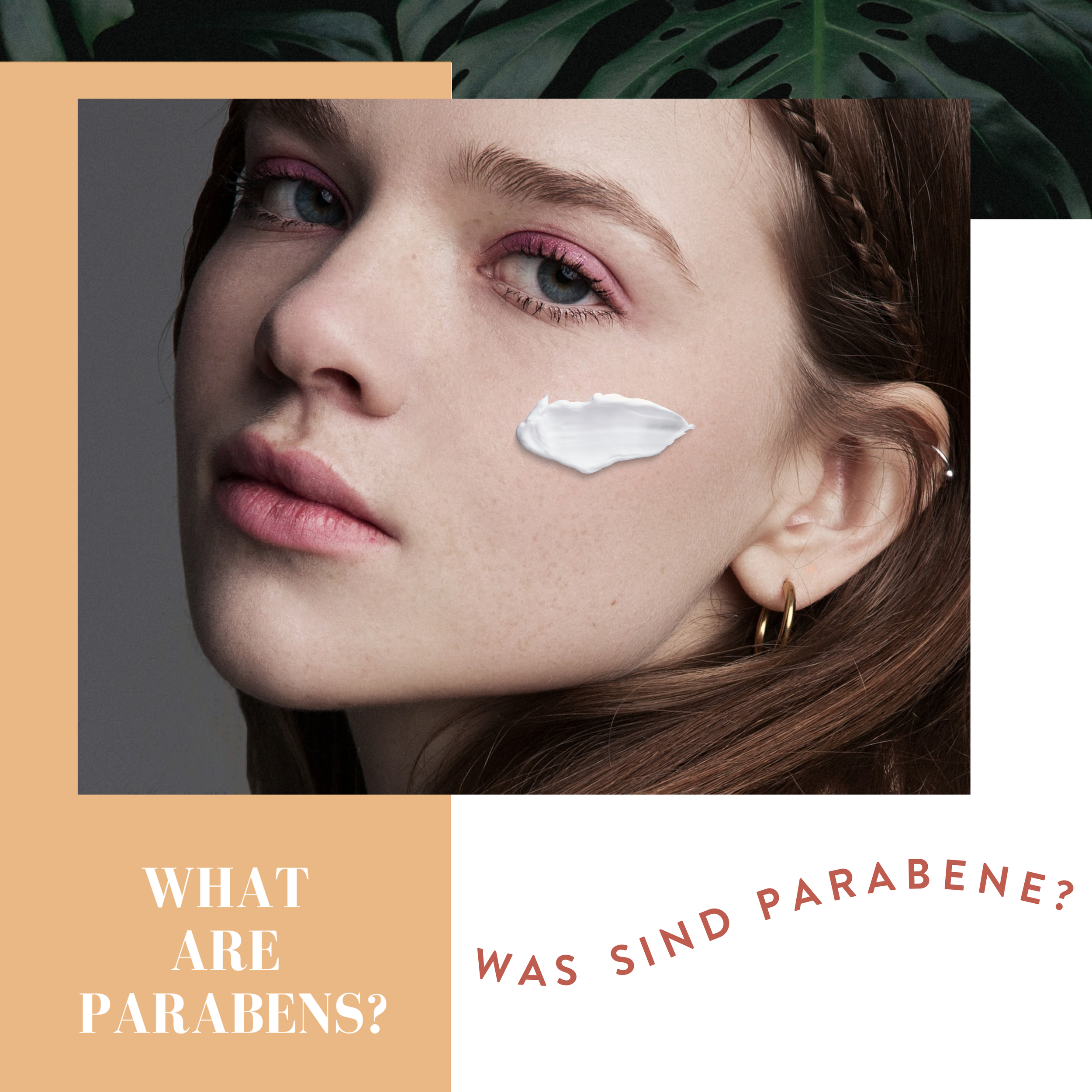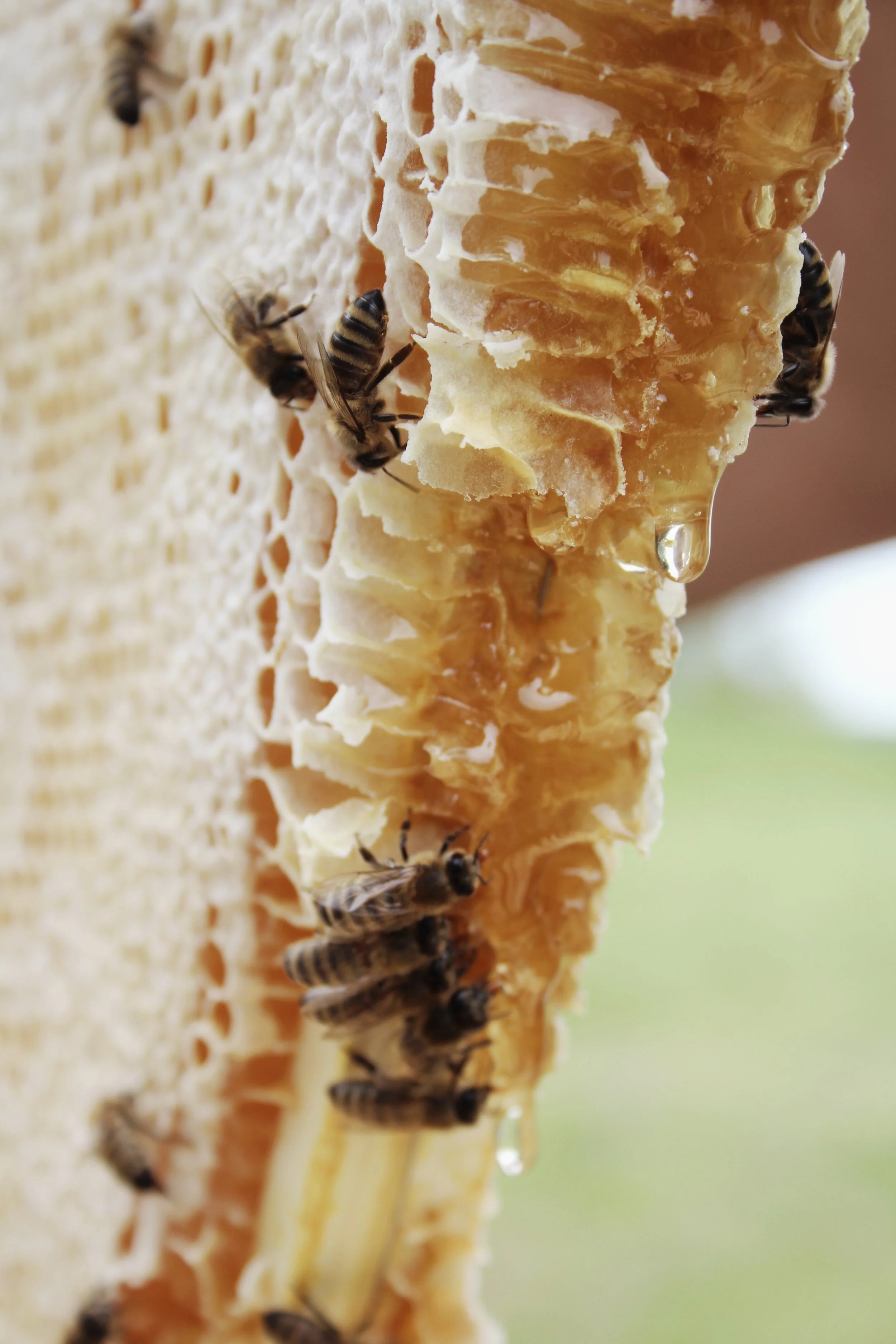COSMETIC INGREDIENTS • What are parabens?
Parabens in cosmetics
With cosmetic products we want to do something good for our skin, to protect it, beautify it or care for it. On average, women use about 12 cosmetic products a day and men use half of them. These include shower gels, deodorants, toothpaste, creams and make-up which contain up to 14 ingredients. In total, there are 168 ingredients per day that the female skin possibly absorbs.
To ensure that conventional cosmetics have a longer shelf life, they often contain synthetic preservatives to prevent the premature spread of microorganisms such as bacteria or moulds. Without preservatives which include parabens, products would quickly spoil after opening. This is because bacteria and moulds get into the cosmetic product mainly through contact with our skin.
Parabens are responsible for killing these bacteria and moulds. They are acid-like substances that occur in many different compounds. Manufacturers often use ethyl and methyl parabens for their products. These are well tolerated by most people, while other preservatives often cause allergies. Why are parabens criticised anyway?
Are Parabens Bad for You?
Parabens are suspected of influencing the hormone balance and are therefore especially critical for pregnant women and adolescents. Animal experiments have shown that parabens have similar effects as the sex hormone oestrogen because the chemical structure of both substances is similar. However, this applies especially to butyl- and propylparabens.
In experiments with rats, parabens in male animals showed a measurable influence on sperm production. They lowered the testosterone level and thus reduce the sperm count.
Although more is known about parabens than about many other preservatives, it has not been researched whether they are rightly associated with diseases such as infertility, premature puberty and hormone-related cancers.
How to recognize parabens in cosmetics
Parabens in cosmetic ingredients can be recognized by the suffix -paraben.
Other synonyms used are:
polyhydroxy butyric acid
Hydroxybenzoate
Oxybezoate
Parahydroxybenzoate
The most commonly used are methyl paraben and ethyl paraben:
Methylparaben is a preservative used in cosmetics and food. In the European Union, methylparaben is approved in the Food Additives Regulation under E numbers E218 and E219.
Ethylparaben is a preservative that is also used in cosmetics and food. In the European Union, ethylparaben is approved in the Food Additives Regulation under E numbers E214 and E215.
Parabens alternatives
Finding alternatives for parabens is not so easy, because they are not replaceable one to one. Moreover, substitutes usually have to be used in much higher concentrations. This affects the consistency, feel and stability of cosmetic products.
Another classic preservative is alcohol which however is not suitable for sensitive skin and has an irritating effect. Very oily products often do not need to be preserved in contrast to water containing products.
Moreover, it should be taken care not to replace parabens by problematic substances like the preservative methylisothiazolinone (MI). This substance has been increasingly criticised and is not as well tolerated as parabens. If it gets on the skin through cosmetic products the risk of an allergic reaction in form of itchy skin eczema is high. According to a study, the MI allergy risk is about five times higher than that of parabens.
Nevertheless, it remains to be said that parabens are not only disputed with regard to their effect on human health, but that the use of synthetic preservatives also harms the environment. This is because they prevent products from rotting in nature and, since we use them, they enter the water cycle, among other things.
Natural cosmetic preservation with honey - making natural cosmetics yourself
If you are looking for a natural remedy that preserves in a natural way, honey is a good choice. Honey has an antibacterial effect and decomposes in an environmentally friendly way.
It also contains disinfectant hydrogen peroxide, which fights bacteria in a natural way. It is produced by an enzyme that the bees add to the honey via their saliva.
Honey also contains vitamins, e.g. vitamin C, thiamine, riboflavin and niacin and minerals such as calcium, potassium, sodium and chlorine. But that's not all: the wondrous nectar is composed of other enzymes that have an anti-inflammatory effect, as well as amino acids and trace elements such as iron, zinc and copper.
Switching to natural cosmetics
You see: that’s the power of nature. If you want to be on the safe side, you should change your daily beauty routine to Natural cosmetics.
The advantages of natural cosmetics:
Less is more:
The skin is supplied with fewer and therefore better ingredients.
Natural beauty:
Through the more conscious selection of the products and their ingredients, the skin appearance improves.
Environmental awareness:
Less chemicals and plastics improve the ecological footprint.
A clear conscience:
Small labels that want to make the world and their customers' problems better are better supported than giant corporations that often exploit.


